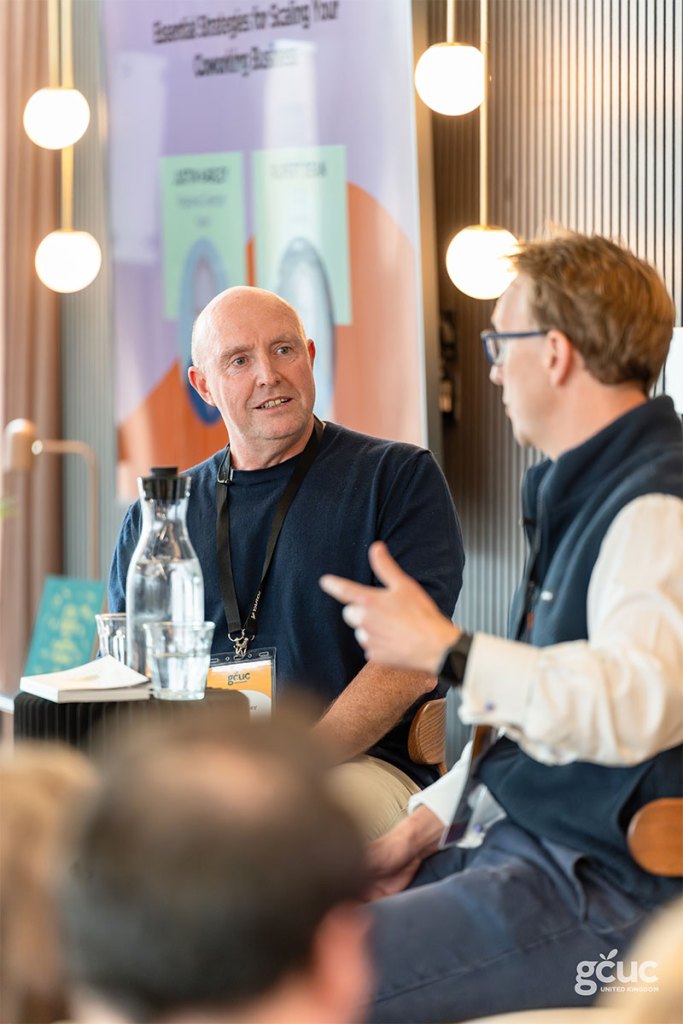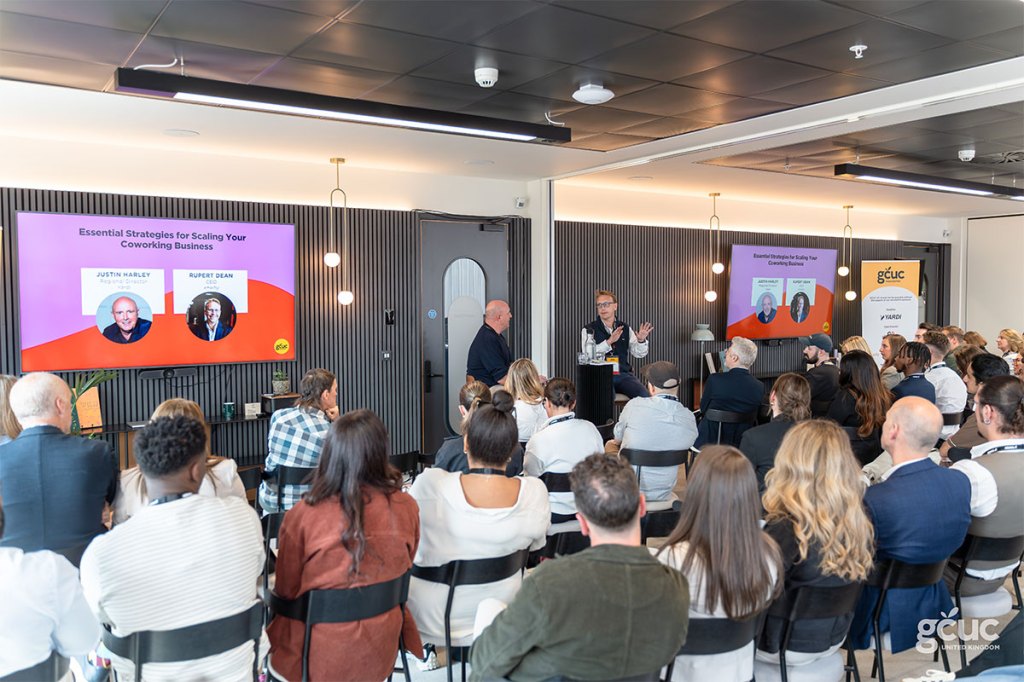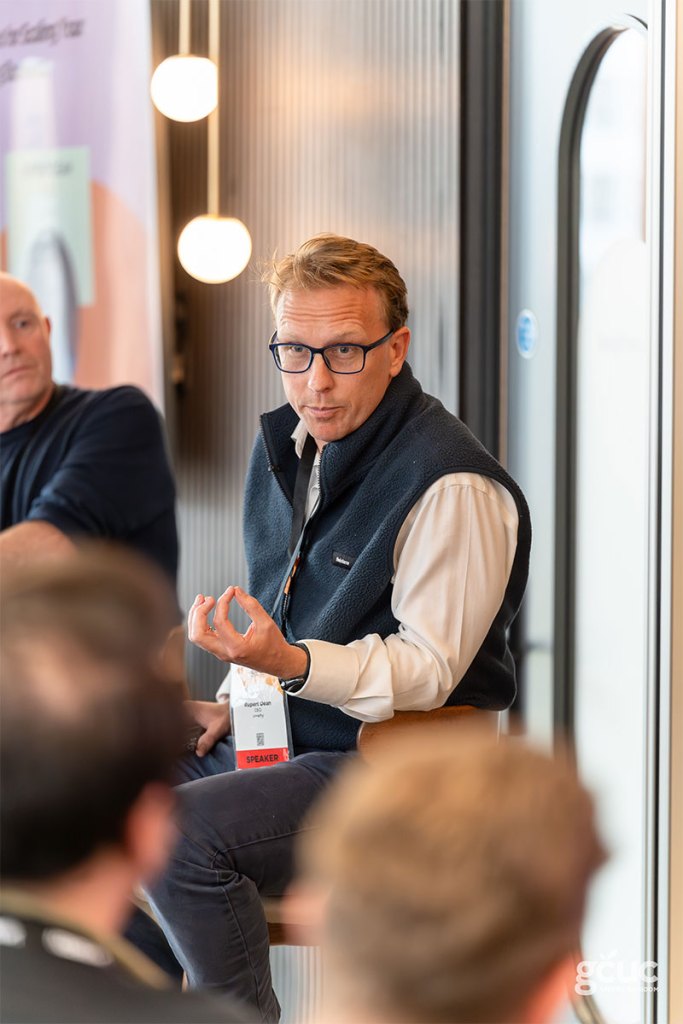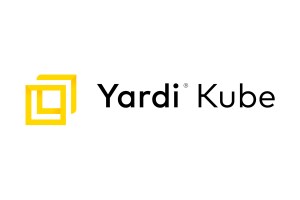In Conversation With x+why’s Rupert Dean… Essential Ways of Scaling a Coworking Business
Last week, the coworking community in the UK joined together in Manchester for GCUC UK. A fantastic day with stimulating discussions and true collaboration. Among the illuminating sessions taking place was a fascinating fireside chat between Yardi Regional Director, Justin Harley, and Co-Founder and CEO of x+why, Rupert Dean. The topic under discussion was essential ways of scaling a coworking business.
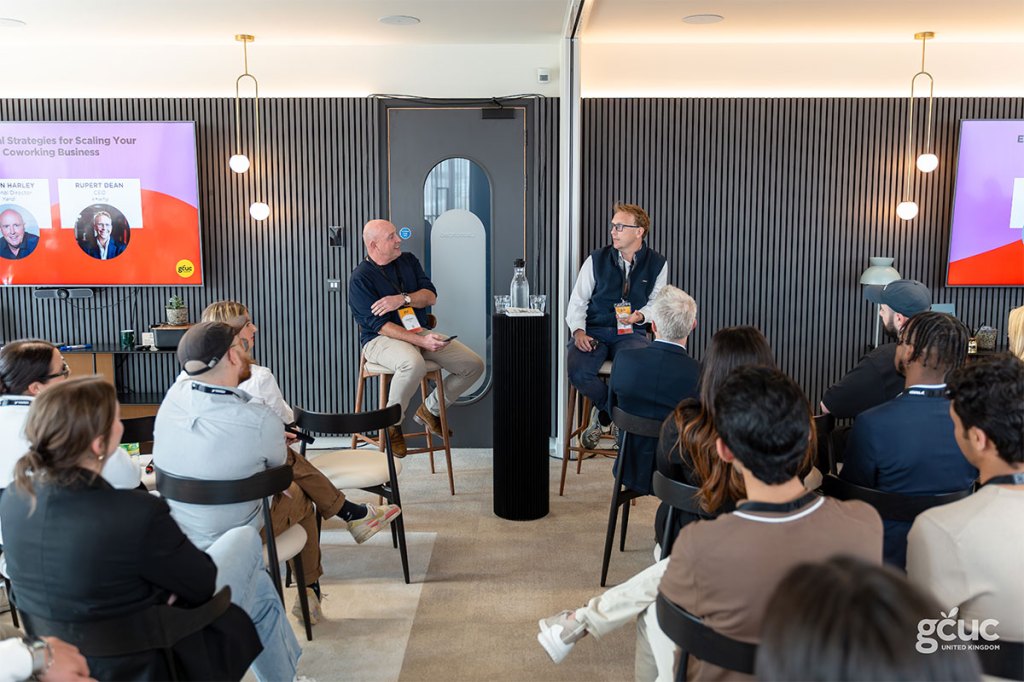
Rupert Dean is fantastically placed to talk on this subject. Since x+why’s establishment in 2019 they have grown rapidly to 13 spaces. For other coworking and flex workspace operators, there is no one better to take notes from when it comes to successfully scaling a coworking business.
After a brief discussion on the formation of x+why, the conversation moved on to how important having a consistent brand is to the scaling process. For Dean, while branding certainly is a core element of their business, they focus more on their values:
“The way that we hire, the way that we engage with our members, and most importantly, the way we engage with our landlords is always the same – these are our values and this is what we stand for.”
Branding isn’t just how a space looks, it’s how you, as a business, interact with members and landlords. It is this that makes a lasting impression and can make or break a business when it comes to scaling.
Utilising Club Spaces
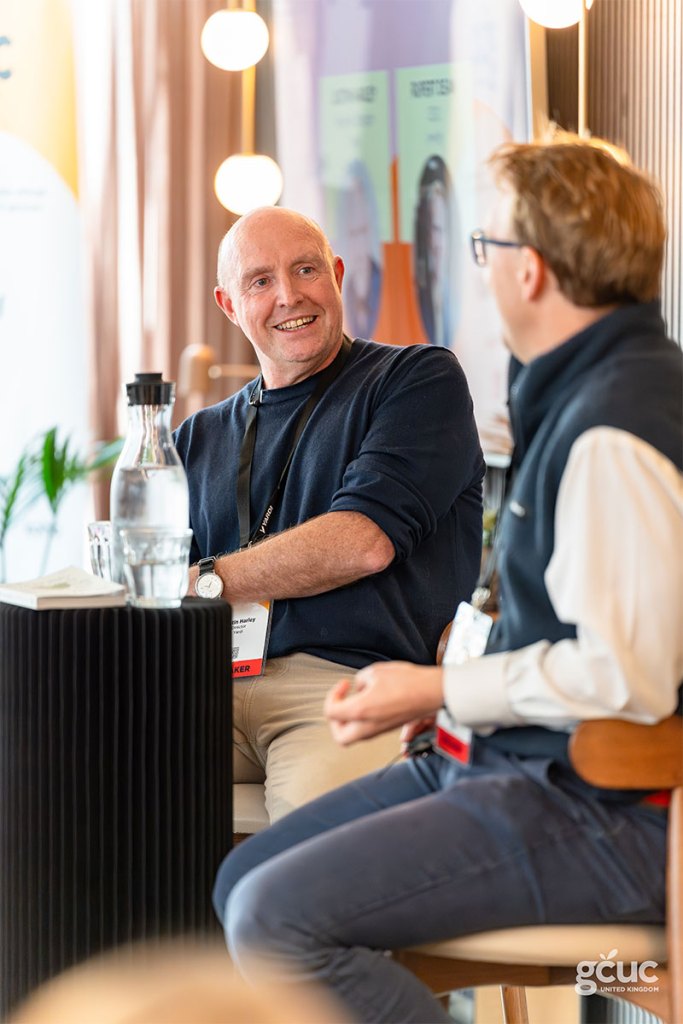
Another feature that sets x+why apart from other coworking spaces is their innovative use of Club Spaces. These feature bars, chefs and a high level of fit-out. Harley asked Dean to what extent these club spaces have impacted the performance of x+why as a business. Dean’s view was that, in essence, there are two points of value a coworking business can shoot for. You can either go for pure value and shoot for the lowest prices, or for the very high end of the scale, embrace the ‘hotelification’ of the industry and be properly service driven – in which case you need to make sure your offering is worth it. Dean’s main takeaway is that being at either end of this scale is fine, but he finds “everything else in the middle becomes a little bit harder to distinguish yourself.”
x+why began by looking at how they can position their spaces at the top end of that scale and found that Club Spaces were the best form of this. “Chefs, good food, proper bars, cocktail making” are key to these spaces. They can be leveraged to service other things like events, engagement, mission and end up being a popular amenity.
How x+why Expanded Quickly
The conversation then turned to the nitty gritty of x+why’s rapid expansion, with Harley asking for some of the mistakes that have been made along the way that Dean would rather avoid if he were undertaking this process again. Dean responded by admitting that going from 1-13 spaces in just five years involved a lot of mistakes and hard work, but highlighting the toughest part being “opening 250,000 square feet of new space in a single month.” This was the culmination of all their hard business development work during the pandemic.
During this time, they took advantage of the state of the market, and the lack of other businesses looking to do management agreements. While this was incredibly successful for them, and really drove the rapid scaling of the business, 18 months down the line everything culminated at the same time. They also found themselves incredibly stretched having to open such a large amount of space in just a few weeks.
Scaling in Flex
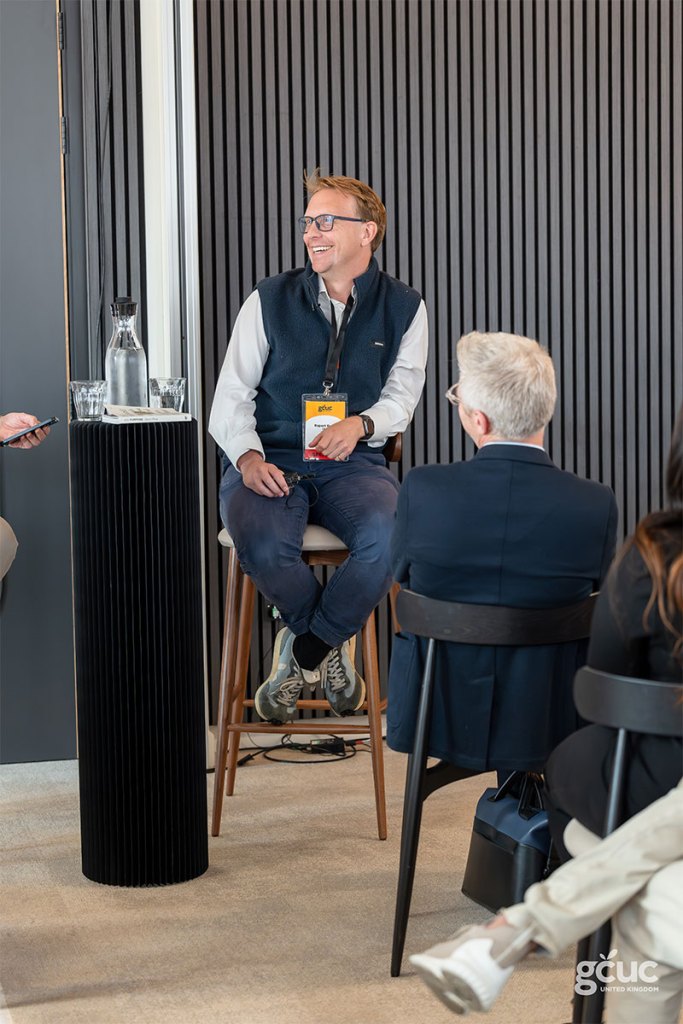
This led Harley to ask what x+why do that has allowed them to scale so successfully. There are other famous examples in the coworking industry of businesses growing rapidly and leading to famous failures. Harley was interested to discover “the difference between scale and tangible bottom line growth and profitability.”
For Dean, the difference comes down to good governance. He noted that those businesses who have perhaps scaled less sustainability have been significant private equity and venture capital investment. This then drives a return requitement to those institutional investors. While that is not necessarily a problem in and of itself, it can force growth without the backing of good governance and a strong brand ethos. “You end up taking space for the sake of space. It can get out of hand, even if you have good product. For us, it was always about, first of all, mitigation of risk through management agreements.”
Scaling alongside your bottom line
The second element of sustainable long-term growth for Dean is the consistent, careful change management, and being able to ensure you scale alongside your bottom line. Dean describes the process as being “a constant game of chicken and egg” when it comes to deciding when to invest. Managing that risk means successfully managing the shifting requirements of all aspects of the business, including finance, marketing, sales, design etc. The key virtue preached by Dean when discussing sustainable growth was the importance of patience over all else.
Harley then turned the conversation towards another essential ingredient in effective scaling. How to ensure you maintain excellent levels of service beyond just a single site. For Dean, there is no secret sauce. And it doesn’t come down to sending staff off to hospitality schools, but rather comes down to company culture. Dean noted how x+why approached from the top down – as company culture stems from the top.
“Fundamentally it’s about being kind, you’ve got to build up the layers of people in the business who are brand ambassadors and love representing you as a brand. The only way to make it work with scale is to ensure it filters all the way down through the business.”
Onboarding in Flex
Beyond good company culture, x+why also spent time crafting a solid onboarding strategy for their staff. So, every new member of staff meets with Dean and has a session about the vision and mission of x+why as a company. The next two weeks is carefully planned to ensure each team member can deliver the high level of service x+why’s members have come to expect:
“Generally, new joiners will always start on a Tuesday or Wednesday, so you have a short first week that is all about the business – nothing more than that. The second week then moves onto training alongside line managers and each new joiner is also assigned a buddy.”
This onboarding process is not only key in ensuring a consistent level of service across all 13 sites, but also helps keep staff turnover as low as possible. Having a high turnover of staff can become costly to bottom lines, which will consequently impact the ability to scale.
This brought to a close a fascinating discussion from one of the industry’s true success stories. It was one of many great sessions at GCUC Manchester, which Yardi was proud to sponsor.
Want to find out how Yardi Kube can help your coworking or flexible workspace scale efficiently? Book a demo with our team here.
Keep in touch with us by following Yardi Kube on LinkedIn!
